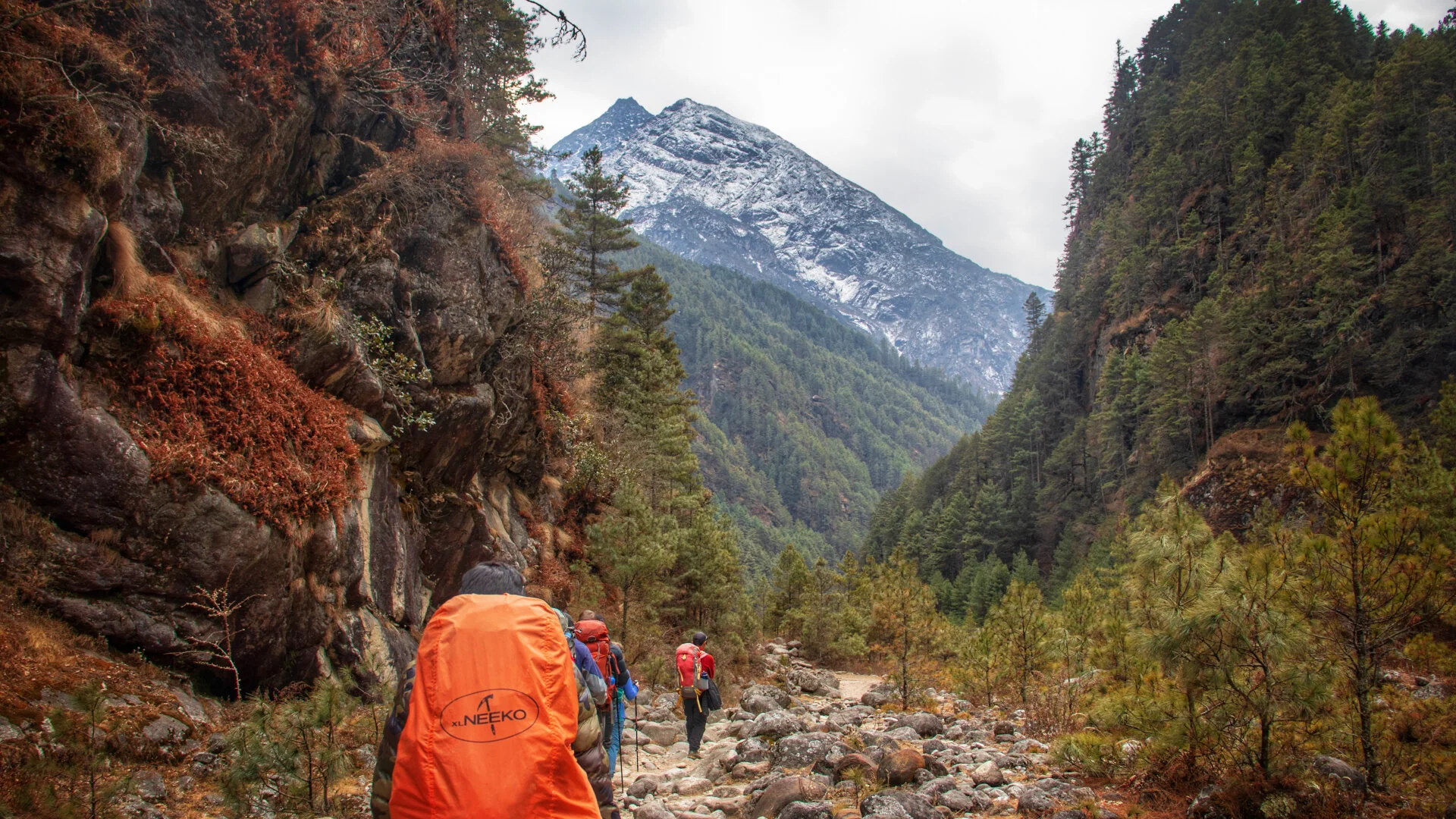A land riddled with high mountain passes, steep and rugged trails, which for an adventurer sounds like paradise. The majestic landscape of Nepal requires one to be prepared with not just the right set of gear but also with a mindset and physique which shall allow them to have a fruitful and magical experience.
1. Walk, hike and then trek
Making way through the rugged paths is not going to be an easy task. The best way to prepare oneself is by accepting that it's going to be a long walk. Thus, it is recommended to begin practising with brisk walks in similar terrain, morning runs, weekend hikes to increase one's physical capability.
If your someone who hits the gym and is confident that his/her normal workout routines are enough to conquer the landscape. I’m afraid that’s not the case. Adding a brisk morning run doesn’t just increase your endurance and stamina. Activities such as yoga and meditation are also recommended to help better one's breathing.
Step training also comes in handy as the trails are riddled with well you guessed it, steps. Uneven, never-ending at times, but certainly a great adventure one can look back and take as an accomplishment.
2. Research your destination
Apart from the basic research of cost, gear and accounts of previous trekkers. It is also recommended to research various elements such as culture, tradition, cuisine, festivals and even basic language skills to enhance one's experience and make their trek more fruitful.
I’ve heard many accounts of how travellers seem to miss cultural experiences because their agent didn’t include it in the package, or they were a few days early. Knowing the area and what it has to offer allows one to have an all-rounded experience.
3. Get comfortable using your backpack
Many seem to find it difficult carrying a backpack which is cause they never trained for it. Even if you are going to hire a porter you will have to carry it onto that point. Adding a backpack to ones training can help you get accustomed to walking, with the weight. It is recommended you carry only the necessary in your backpack, and have everything else be in a duffel bag which can be carried by your porter.
4. Don’t forget the basics and don’t overpack
When it comes to treading trails, less is more! It is when one stare at the incline one realizes, they shouldn’t have packed so much supply. To start things off, research your trip and what it demands and pack accordingly. Is it teahouse, homestay, camping or mixed? If it's not basic then choose to rent from travel gear companies which can be found in tourist centres. This doesn't just reduce cost but also makes it hassle-free.
Normally one can divide their gear into two categories: basic and specialized. Specialized pieces of equipment are required according to the trips genre, apart from which some of the basics are mentioned below:
A good pair of trekking shoes
Fleece Jackets/ Down Jackets
Raincoat and Rain Cover
Reusable Water Bottle
A good trekking pack (35-40 Litres, look for adjustable straps, waist straps, good padding and comfort)
First Aid Kit along with personal medication ( Recommended putting together at the destination due to flight restrictions)
Headlamp, Compass, Whistle and Region Map
Good Hiking Socks Trekkers Advice: Always stash an extra pair.)
Toiletries, Small Wash Towel, Sunscreen
A reuseable bag ( To place one's waste during the trail to have it disposed at the days stop. You don’t want to be the litterer of the pack.)
Spare batteries and chargers
5. Diet matters
One's diet is a very crucial factor in making the best out of one's trip. It is recommended to have a full breakfast, rather than looking forward to lunch. Check with your local nutritionist for the best pre-trek meal plan and maintaining a good diet during the trip.
Make sure to avoid the consumption of tobacco and alcoholic goods before the trip. As it greatly reduces ones immunity and stamina which are crucial for a good trek. Make sure to research meal plans, the local cuisine and to let the agency or your hosts know if you have any dietary restrictions or allergies.











